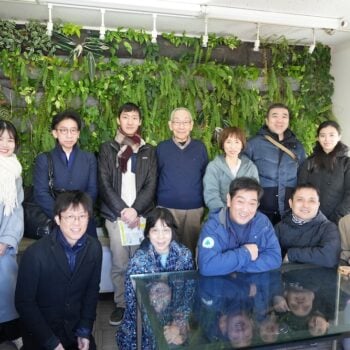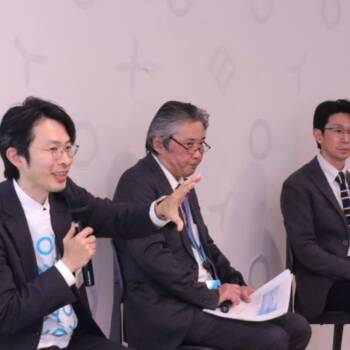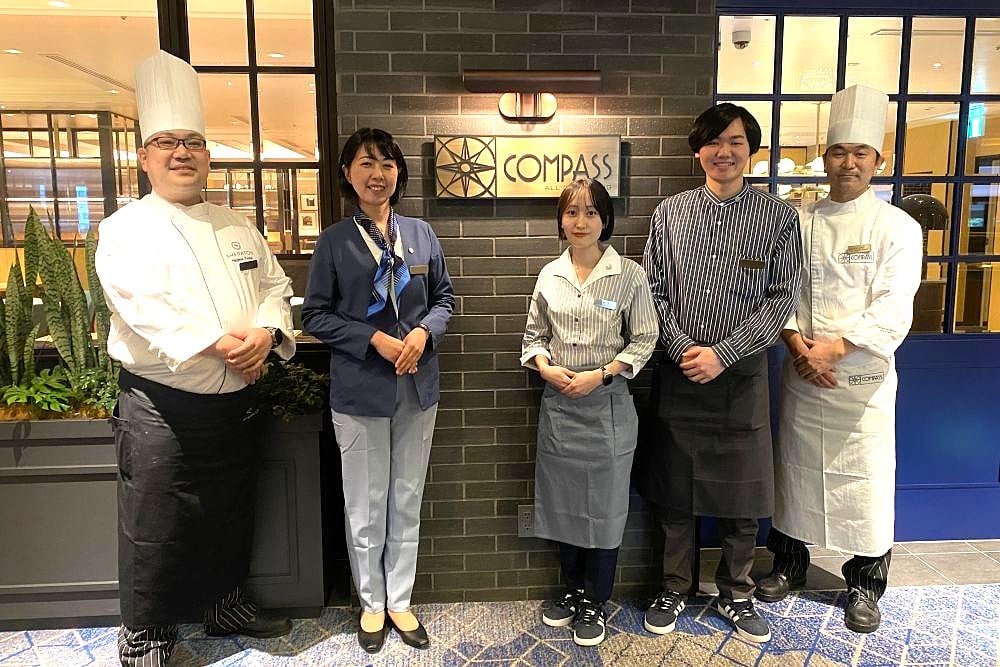
Circular Hospitality in Action: Yokohama Bay Sheraton’s Approach to Food and Energy Cycles
- On 2025/9/29
While several hotels across Yokohama are embracing sustainability, Yokohama Bay Sheraton Hotel & Towers stands out for its integrated approach to circulating both food and energy within its operations. Conveniently located with direct access to Yokohama Station, one of the country’s busiest transportation hubs, the hotel introduces circular practices to a wide range of guests, from local families to international travelers.
To understand how this urban hotel embeds circularity into everyday service, Circular Yokohama corresponded with Hajime Touma, Head Chef at Compass, the hotel’s all-day dining restaurant, and Izumi Takahashi from the hotel’s marketing team. They shared recent developments and ongoing efforts at Compass and beyond.

Staff members of Compass
Local Ingredients, Circular Roots
One of the hotel’s most defining sustainability initiatives is its long-running food recycling system, launched in 2008. Known as YASAICLE, it transforms kitchen waste into compost, which is then used by local farms. The produce grown with this compost is purchased back by the hotel, forming a localized circular model that reduces food waste and supports regional agriculture.
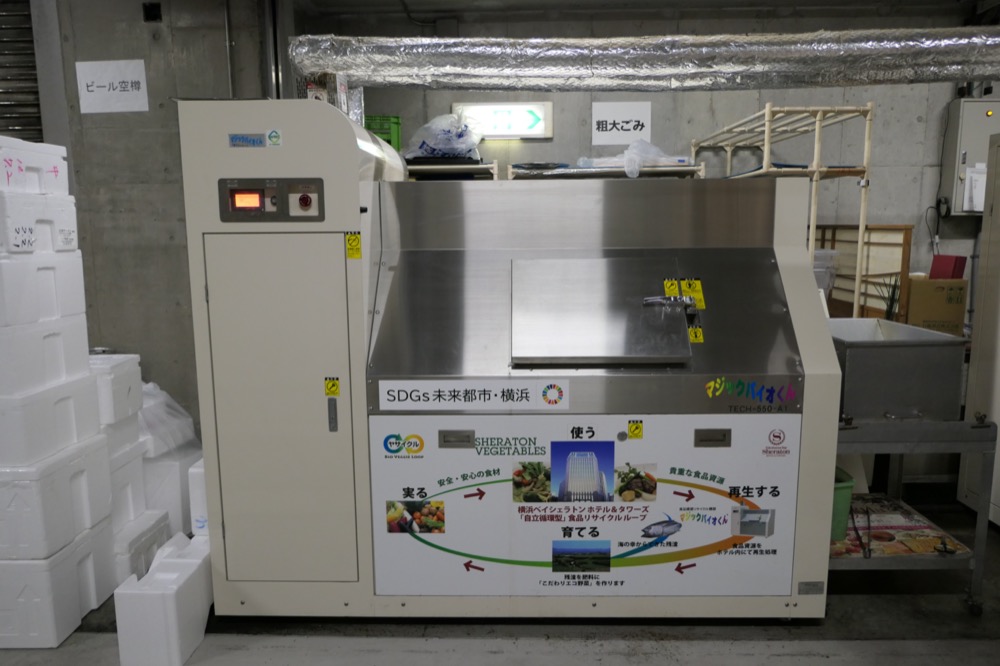
A composting machine in the waste processing area
featuring premium ingredients sourced from across Kanagawa Prefecture. Guests can enjoy Harumi rice grown in Yokohama’s paddy fields, Misaki tuna from the Miura Peninsula, Odawara pickled plums, and Shonan whitebait (young sardines caught along the Sagami Bay coast).
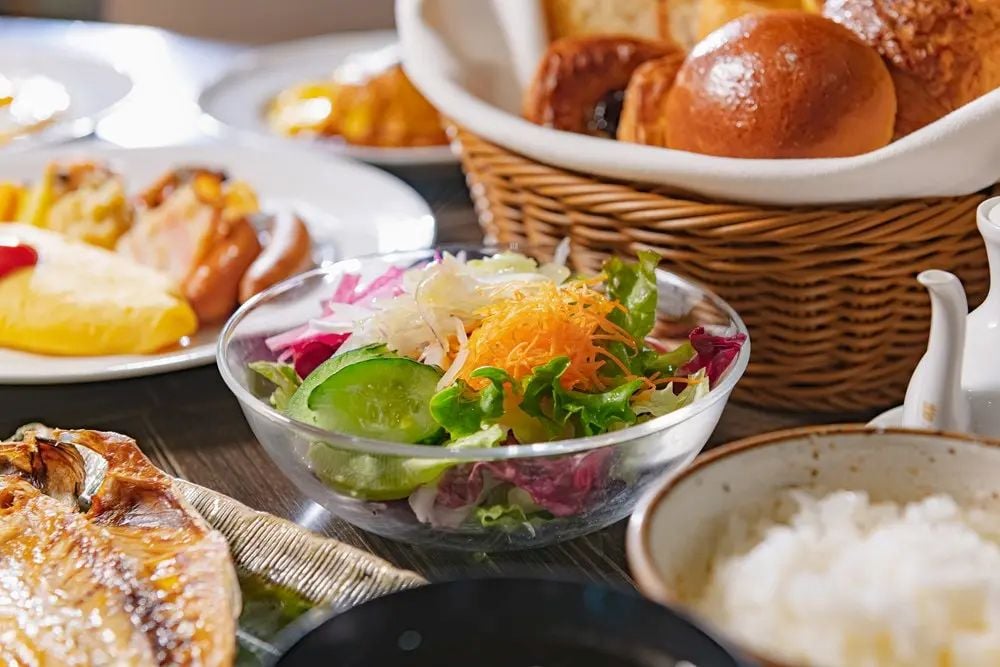
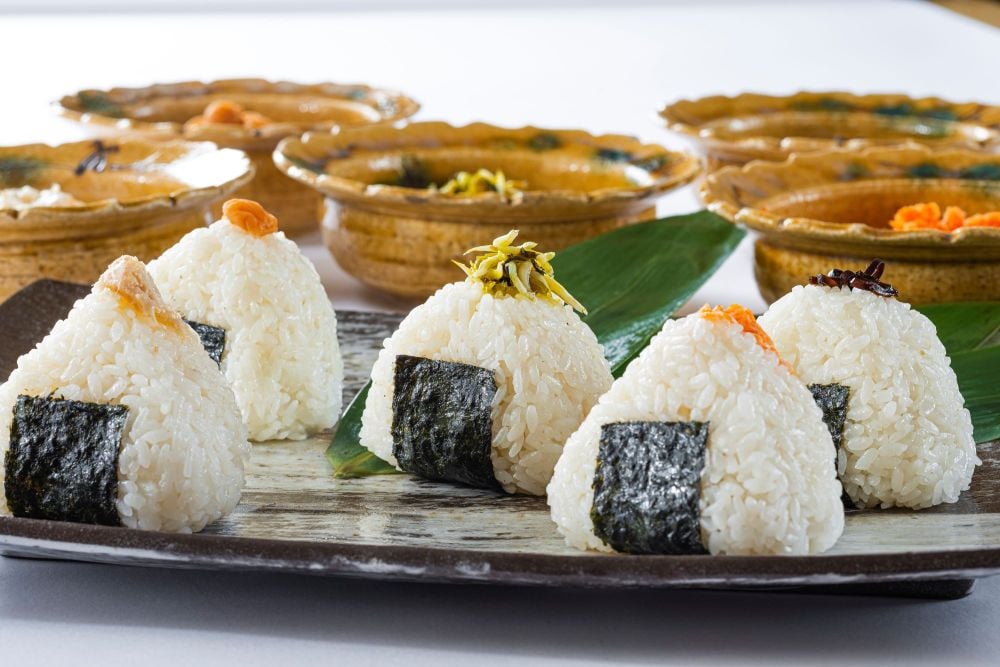
Onigiri with various local seasonings
The menu also features a daily rotation of local specialties such as gyunabe, a beef hot pot dish said to have originated in Yokohama; iekei ramen, a rich pork and soy sauce-based ramen originated in the city; and tonzuke, a marinated grilled pork dish from Atsugi, another Kanagawa city. The goal is to provide guests, especially those staying only briefly, with an authentic taste of the region while promoting a sustainable, locally rooted food system.
Rethinking Buffets to Cut Waste
Buffets are often associated with food waste, which is also an environmental concern. According to the UNEP Food Waste Index Report 2024, global food waste contributes to an estimated 8 to 10 percent of greenhouse gas emissions.
To reduce food waste, Compass has introduced a hybrid model that blends the convenience of traditional buffets with made-to-order service. Guests can select premium dishes through an ordering system, which are then delivered directly to their tables, while still enjoying a visually engaging buffet area for self-service items.

This format not only enhances comfort and accessibility, especially for seniors and families, but also helps minimize overproduction. “This approach was born during the COVID-19 pandemic, but we kept it because it effectively reduces food waste,” Touma explains.
Thoughtful Design and Renewable Power
The hotel’s commitment goes beyond food. The 2024 renovation of Compass drew inspiration from Yokohama’s historic Yamate district, known for its Western-style architecture.
The restaurant is now zoned like a private residence, with areas themed as a seaside room, a central dining space, and a quiet private area. Lighting can be adjusted for different times of day or events, and some tables are equipped with power outlets to support laptop use during breakfast or business meetings. Staff uniforms were also redesigned for ease of movement and comfort across the spacious floor.
The restaurant is now zoned like a home, with areas themed as a seaside room, a central dining space, and a quiet private area. Lighting can be adjusted for different times of day or events, and all tables are equipped with power outlets to support laptop use during breakfast or business meetings. Staff uniforms were also redesigned for ease of movement and comfort across the spacious floor.
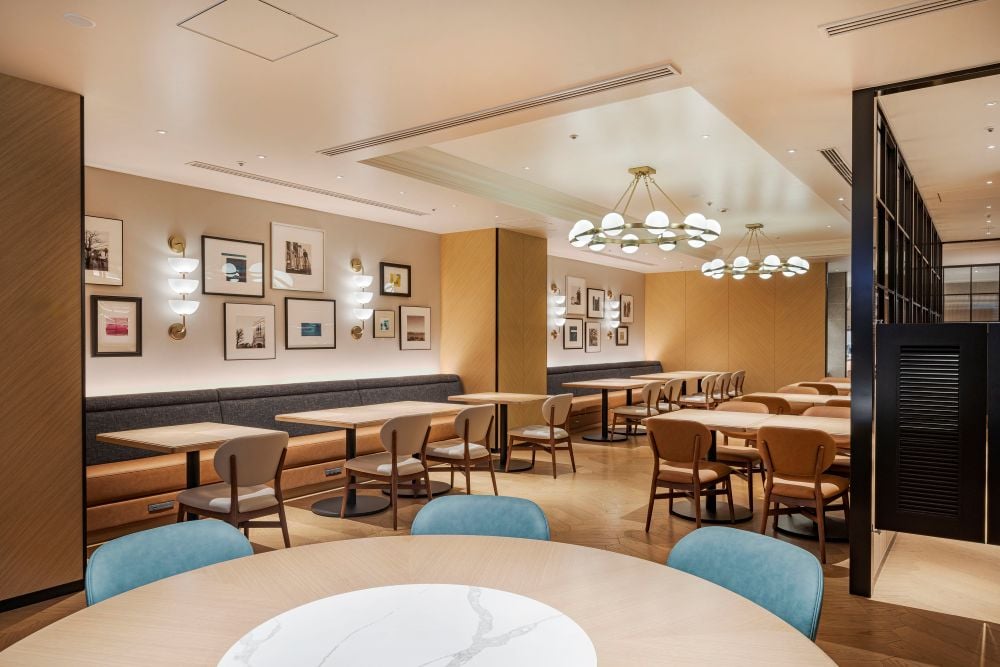
The interior of the all-day dining Compass
For energy, Yokohama Bay Sheraton is helping advance the city’s “Zero Carbon Yokohama” strategy. It sources part of its electricity through Hamakko Denki, a local renewable energy program powered by biomass from city incineration plants and solar power from Yokohama homes. In July 2024, the hotel began using Hamakko Denki Plus as well. Together, these sources are expected to reduce approximately 700 t-CO₂ emissions annually, based on the previous year’s electricity consumption.
Circular Mindset in Every Detail
Sustainability at the hotel is not limited to large-scale infrastructure. At Konohana, its Japanese fine dining restaurant, damaged dishes are repaired using kintsugi, a traditional technique that involves restoring pottery with lacquer and gold. Instead of hiding flaws, kintsugi embraces them, celebrating imperfection and the beauty of transformation. This philosophy honors the longevity of objects, echoing the message of regeneration and care, and providing a perfect match for the cuisine served on each plate.
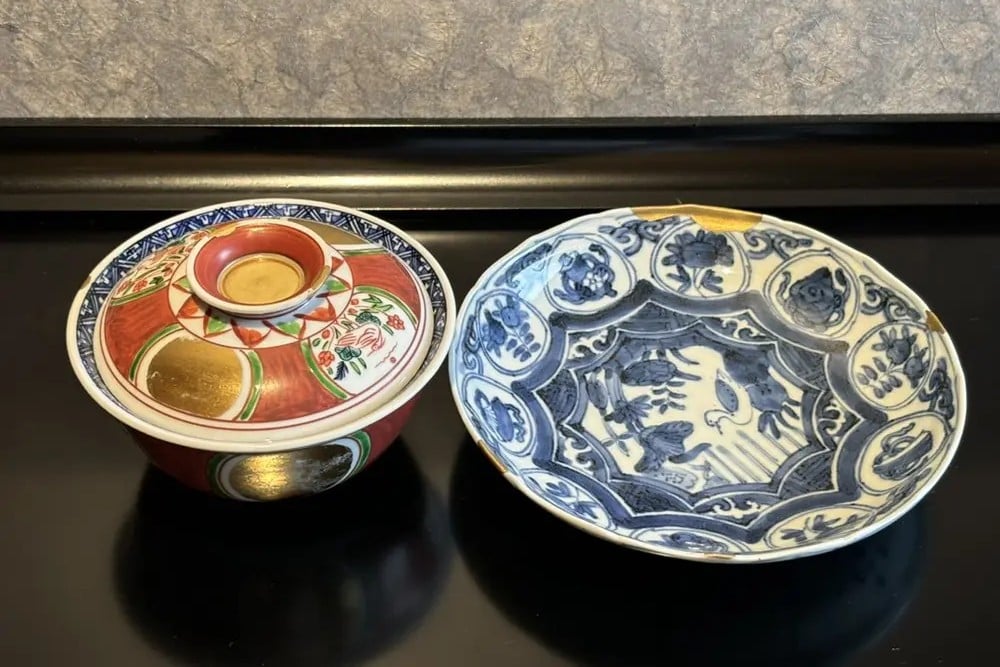
Dishes repaired with kintsugi
Similarly, the in-house pastry shop Dorer practices food upcycling by turning leftover baguettes into rusks in three flavors: chocolate, garlic, and almond. It’s a small but effective initiative that keeps edible food out of the waste bin.
The guest rooms follow the same logic. Amenities include toothbrushes and grooming products made from biomass materials such as sugarcane and rice bran. Guests who opt out of daily room cleaning are offered restaurant vouchers through a Green Program that reduces laundry-related water and energy consumption.
The Challenge: Making Circularity the Norm
The hotel’s efforts have been recognized with Yokohama’s highest Y-SDGs Supreme certification and the international Sakura Quality Green rating at the “4 Gyoikou Zakura” level. These honors reflect a long-standing commitment to sustainability, but the team knows the journey is ongoing.
“Training new staff in waste separation and maintaining compost equipment is a constant effort,” says Takahashi. “We also need to improve menus and services in ways that help reduce plate waste.”
A 2025 study by Booking.com found that 93% of global travelers want to make more sustainable travel choices. It reflects growing demands for sustainable options like Yokohama Bay Sheraton Hotel & Towers. It also reveals a high priority for sustainability in shaping responsible tourism, together with a need to highlight such efforts to further raise awareness among travelers.
Where Every Stay Supports a Sustainable Future
“As a hotel rooted in Yokohama’s West Exit community, our Company Vision is built around the idea of ‘Best Smiles for You,’” the team shares. “We aim to be a hotel that is kind to both people and the planet. Since launching YASAICLE in 2008, we’ve strengthened ties with Kanagawa’s farmers and built a food system based on circularity and trust. Together with our guests, we will continue to work toward a more sustainable future.”
More than an accommodation, Yokohama Bay Sheraton Hotel & Towers offers a glimpse into what circular living can look like in a major urban setting. Whether you’re a student on a school trip, a professional on a business visit, or a traveler curious about sustainable lifestyles, there’s sustainability and circularity to learn and experience here.
If you’re interested in exploring circular economy initiatives in Yokohama, feel free to contact us to book a learning tour; Know more about a sustainable tour with Circular Yokohama.
[Related Post]UNDP Philippines Delegates’ journey into Japan’s Circular Economy
[Related Post]Circular Yokohama Hosts UIUC from USA: A One-Day Journey into Circular Design
[Related Post]Food Loop






